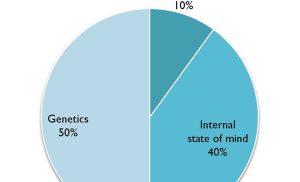Can Technology And Apps Help Individuals Track And Manage Their Stress Levels?
In today’s fast-paced world, stress has become a common problem that affects many individuals. But what if technology could come to the rescue? With the advancements in technology and the development of various apps, individuals now have the ability to track and manage their stress levels. From meditation apps that guide you through relaxation techniques to wearable devices that monitor your heart rate and sleep patterns, there are numerous tools available to help you combat stress and achieve a more tranquil state of mind. It’s time to take a closer look at how technology and apps can revolutionize the way we handle stress.

The Impact of Stress on Individuals’ Health and Well-being
Stress has become an increasingly common aspect of modern life, affecting individuals of all ages and backgrounds. The relentless demands and fast-paced nature of today’s world can often take a toll on our mental and physical health. The effects of stress can be far-reaching, impacting our overall well-being in various ways.
Understanding the effects of stress on mental and physical health
Stress can have detrimental effects on our mental health, causing symptoms such as anxiety, depression, and irritability. It can lead to difficulty concentrating, making decisions, and sleeping. Prolonged exposure to stress can even contribute to the development of more serious mental health conditions over time.
In addition to its impact on mental health, stress can also affect our physical well-being. Chronic stress can weaken the immune system, making individuals more susceptible to illnesses and infections. It can also lead to headaches, muscle tension, high blood pressure, and an increased risk of heart disease. Clearly, managing stress is crucial for maintaining optimal health and well-being.
The importance of stress management in maintaining overall well-being
Given the negative impact of stress on our health, it is essential to prioritize stress management in our lives. Taking proactive steps to reduce and manage stress can significantly improve our overall well-being and quality of life. Effective stress management can enhance our mental clarity, boost our immune system, improve our sleep patterns, and increase our overall happiness and satisfaction.
The Role of Technology in Stress Management
Introduction to stress management tools and techniques
In recent years, technology has emerged as a valuable tool in stress management. With the rise of smartphones, wearable devices, and various applications, individuals now have access to a wide array of stress management tools and techniques at their fingertips. These technological advancements have made it easier than ever to track, monitor, and manage stress levels efficiently.
Benefits of using technology for stress management
Using technology for stress management offers numerous advantages. First and foremost, it provides convenience and accessibility. Stress management tools and apps can be accessed anytime, anywhere, allowing individuals to incorporate stress management practices seamlessly into their daily routines. Technology also offers a level of flexibility, offering a range of techniques and strategies to cater to individual preferences and needs.
Moreover, technology allows for personalized and tailored stress management approaches. Many apps and devices offer features that adapt to each user, providing recommendations and interventions based on their unique circumstances and goals. Additionally, technology can provide instant feedback and analysis, helping individuals gain a deeper understanding of their stress levels and patterns.
Types of Stress Management Apps
Mindfulness and meditation apps
Mindfulness and meditation apps have gained significant popularity in recent years, offering individuals guided meditation sessions and mindfulness exercises. These apps often include features such as soothing music, calming visuals, and breathing techniques to help individuals relax and reduce stress. Whether you are a beginner or an experienced practitioner, these apps provide a convenient way to incorporate mindfulness into your daily routine.
Breathing exercises and relaxation apps
Breathing exercises and relaxation apps are specifically designed to help individuals unwind and relieve stress. These apps offer various breathing techniques, calming exercises, and relaxation music to induce a sense of peace and tranquility. By practicing deep breathing and engaging in relaxation exercises, individuals can regulate their heart rate, lower their blood pressure, and promote a state of relaxation and well-being.
Journaling and self-reflection apps
Journaling and self-reflection apps provide a platform for individuals to express their thoughts, emotions, and experiences. Writing in a journal has long been recognized as a beneficial way to cope with stress and improve mental well-being. In the digital age, journaling apps offer individuals a private space to reflect, process their emotions, and gain clarity and insight into their stressors. These apps often come with prompts, reminders, and organization features to assist individuals in their journaling practice.
Features of Stress Management Apps
Stress tracking and monitoring
A key feature of stress management apps is stress tracking and monitoring. These apps can use various inputs, such as heart rate, activity levels, and self-reported data, to assess an individual’s stress levels and patterns over time. By providing users with a visual representation of their stress levels, these apps enable individuals to identify triggers, patterns, and trends, empowering them to make informed choices and take necessary steps to manage their stress effectively.
Personalized recommendations and guided interventions
Many stress management apps offer personalized recommendations and guided interventions to help individuals manage their stress. These recommendations can include self-care activities, exercises, and techniques specifically tailored to each user’s needs and preferences. Guided interventions, such as meditation sessions or breathing exercises, can provide individuals with step-by-step instructions and support, enabling them to navigate stressful situations successfully.
Integration with wearable devices and fitness trackers
To enhance their functionality, stress management apps often integrate with wearable devices and fitness trackers. These devices can gather real-time data, such as heart rate variability and sleep patterns, which can offer valuable insights into an individual’s stress levels and overall well-being. By combining data from these wearable devices with stress management apps, individuals can gain a comprehensive understanding of their stress patterns and track their progress over time.
Biofeedback and stress level analysis
Some advanced stress management apps employ biofeedback techniques to measure an individual’s physiological responses to stress. By analyzing heart rate, skin temperature, and other biomarkers, these apps can provide objective data on an individual’s stress levels. This biofeedback data can help individuals recognize physical signs of stress and learn to manage them effectively.

Effectiveness of Stress Management Apps
Research studies on the efficacy of stress management apps
Numerous research studies have investigated the effectiveness of stress management apps in reducing stress and promoting well-being. These studies have found promising results, with many individuals reporting a significant decrease in stress levels and an improvement in overall mental health. However, it is important to note that the effectiveness of these apps can vary depending on factors such as the specific app used, individual adherence, and the level of support offered.
User reviews and feedback on popular stress management apps
User reviews and feedback provide valuable insights into the effectiveness of various stress management apps. Many individuals have reported positive experiences with these apps, expressing appreciation for the convenience, accessibility, and ability to personalize stress management practices. However, it is essential to consider that individual preferences and needs may vary, so it is advisable to explore multiple apps and choose the ones that align with your specific goals and preferences.
Considerations for Choosing a Stress Management App
Compatibility with the user’s device and operating system
One crucial consideration when choosing a stress management app is compatibility with the user’s device and operating system. It is essential to ensure that the app is compatible with your smartphone, tablet, or wearable device to ensure a seamless user experience.
User-friendly interface and ease of navigation
A user-friendly interface and ease of navigation are essential factors to consider when selecting a stress management app. The app should be intuitive and simple to navigate, allowing users to access features and resources without confusion or frustration.
In-app security and privacy measures
Given the sensitive nature of stress management and personal health data, it is crucial to choose an app that prioritizes security and privacy. Look for apps that implement robust security measures, such as encryption and password protection, to ensure that your data is kept safe and confidential.
Availability of professional support and counseling
While stress management apps can be a valuable tool, it is important to consider the availability of professional support and counseling. Some apps may offer access to expert advice, therapeutic resources, or even virtual counseling sessions, which can enhance the effectiveness of stress management practices.

Complementary Technologies for Stress Management
Virtual reality (VR) and augmented reality (AR) for stress reduction
Virtual reality (VR) and augmented reality (AR) technologies offer exciting possibilities for stress reduction. VR experiences can transport individuals to calming and serene environments, promoting relaxation and stress relief. AR, on the other hand, can provide individuals with interactive tools and visualizations to alleviate stress and enhance well-being.
Wearable devices for stress monitoring and biofeedback
Wearable devices, such as smartwatches and fitness trackers, can complement stress management apps by providing real-time stress monitoring and biofeedback. These devices can track physical responses to stress, such as heart rate variability, and provide individuals with insights into their stress levels. Integrating wearable devices with stress management apps offers a comprehensive approach to stress management.
Artificial intelligence (AI) and machine learning for personalized stress management
Artificial intelligence (AI) and machine learning technologies have the potential to revolutionize personalized stress management. These technologies can analyze vast amounts of data, including user inputs, wearable device data, and other relevant factors, to create tailored stress management plans. AI-powered apps can adapt and refine their recommendations based on individual preferences and responses, optimizing stress management practices.
Challenges and Limitations of Stress Management Apps
Reliance on self-reporting and user engagement
One potential limitation of stress management apps is their reliance on self-reporting and user engagement. The effectiveness of these apps depends on individuals accurately reporting their stress levels and consistently engaging with the app’s features and resources. This can be challenging for individuals who struggle with self-awareness or motivation.
Lack of scientific validation for some features and techniques
While many stress management apps incorporate evidence-based techniques, some features and techniques may lack scientific validation. It is important to critically evaluate the credibility and reliability of the app’s content, particularly for apps that offer less common or alternative stress management approaches.
Limitations in addressing complex or chronic stress
While stress management apps can be highly effective for everyday stressors, they may have limitations in addressing complex or chronic stress. Individuals facing significant stressors, such as trauma or chronic health conditions, may benefit from additional support and interventions beyond what apps can provide. In such cases, it is advisable to seek professional guidance or use apps in conjunction with other therapeutic approaches.
The risk of excessive reliance on technology
With the increasing reliance on technology for stress management, there is a potential risk of becoming overly dependent on apps and devices. It is important to strike a balance between utilizing technology for stress management and engaging in offline coping strategies. Apps should be seen as a tool to complement and enhance stress management practices, rather than a substitute for healthy lifestyle choices and human connection.
Tips for Incorporating Technology in Stress Management
Setting realistic goals and expectations
When incorporating technology in stress management, it is essential to set realistic goals and expectations. Understand that stress management apps are not a quick fix but rather a tool to support your journey towards better well-being. Set achievable goals and be patient with yourself as you navigate the process.
Finding a balance between technology use and mindful living
While technology can be instrumental in stress management, it is essential to find a balance between technology use and mindful living. Allocate time to disconnect from screens and engage in activities that promote relaxation, such as spending time in nature, cultivating meaningful relationships, or practicing mindfulness without relying solely on apps.
Seeking professional guidance in conjunction with app usage
For individuals experiencing significant or chronic stress, seeking professional guidance in conjunction with app usage can be highly beneficial. A qualified therapist or counselor can provide tailored support, guidance, and interventions to address specific stressors and facilitate long-term well-being. Combining professional guidance with stress management apps can lead to more comprehensive and effective stress management outcomes.
Conclusion
Technology and apps undeniably have the potential to revolutionize the way individuals track and manage their stress levels. The convenience, accessibility, and personalized features of stress management apps make them valuable tools in promoting overall well-being. However, it is crucial to find the right app that aligns with your needs and preferences while striking a balance with healthy coping strategies. With the right approach and mindful use of technology, individuals can harness its power to support stress reduction and enhance their overall quality of life.

















